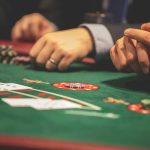Understanding Pressure in Dressage Competitions
In the realm of dressage competitions, handling pressure is a crucial element for success. Pressure here refers to the intense demand to perform optimally while meeting the expectations of judges, peers, and oneself. This pressure can significantly affect a rider’s performance and concentration. A rider under stress may experience heightened anxiety, which can disrupt their focus and execution, leading to subpar performances.
Mental preparation plays a pivotal role in managing this pressure. It’s not just about physical readiness; mental acuity is equally important. Effective pressure management encompasses learning how to maintain a calm and centred mind during competitions. This calmness enables riders to execute their routines fully focused on their tasks, rather than being overwhelmed by external stressors.
In parallel : Rev Up Your Cycling Performance: Effective Interval Training Techniques to Enhance Time Trial Success
Adopting focus techniques is another critical aspect. Techniques such as visualization and strategic breathing not only help in maintaining concentration but also in fostering a sense of control. Riders who consistently practice these techniques are generally better equipped to face the stress associated with dressage competitions. By embedding these strategies into their routine, they build resilience, ensuring that their mental preparation translates into enhanced performance on the day of the competition.
Understanding Pressure in Dressage Competitions
In dressage competitions, pressure management is crucial for optimal performance. Pressure refers to the mental and emotional demands placed on riders as they aim to perform at their peak during competitions. This pressure can stem from the desire to succeed, audience expectations, and the competitive environment.
Additional reading : How Cricket Bowlers Can Shield Their Shoulders: Pro Strategies for Injury Prevention in Lengthy Matches
Pressure significantly impacts a rider’s performance by affecting their focus and concentration. When a rider feels overwhelmed, their ability to make precise movements and communicate effectively with their horse can deteriorate. The mental strain can lead to errors, affecting the overall performance.
Mental preparation plays a vital role in handling this pressure. Effective focus techniques can help riders maintain composure and clarity throughout their routine. This involves developing strategies to remain calm, centred, and fully present in the moment, thereby enhancing their ability to concentrate on each task during the performance.
Riders often employ methods such as goal setting and pre-competition routines to mentally prepare. These techniques ensure that they enter competitions with a clear mind, ready to execute their training. Emphasizing mental preparedness not only boosts confidence but also improves resilience against competition stress, allowing riders to perform consistently well under pressure.
Concentration Strategies for Competitive Riders
Enhancing one’s concentration strategies is essential for competitive riders aiming to excel. These strategies are tailored to boost focus during high-pressure situations, fundamentally improving performance. With proper implementation, riders can access a sustained level of attention, necessary for executing intricate routines flawlessly.
Visualization Techniques
Visualizing success has proven to be an effective tool in competitive riding. Practicing visualization involves picturing oneself gliding through a routine seamlessly. By engaging the mind in this way, riders can foster a profound sense of confidence and preparedness. For instance, accomplished riders often spend time before a competition visualizing each movement, enhancing their execution through mental practice.
Mindfulness and Breathing Exercises
In the arena of pressure-filled competitions, mindfulness serves as a crucial element in sustaining concentration. Implementing specific breathing techniques can substantially reduce anxiety, enabling riders to maintain focus. Techniques such as deep diaphragmatic breathing help slow the heart rate, promoting a sense of calmness. By integrating these exercises, riders better manage their mental state during performances.
Goal Setting and Routine Development
Clear goal setting is another vital aspect of maintaining concentration. Crafting tailored pre-competition routines establishes a foundation for success. These routines include defined objectives and strategic preparations, positioning riders to enhance their overall performance. As experts recommend, a well-structured routine serves to anchor the rider’s focus before and during the competition.
Concentration Strategies for Competitive Riders
In competitive riding, effective concentration strategies are essential for enhancing a rider’s performance. These strategies help riders maintain focus and composure, even during the most challenging parts of a routine.
Visualization Techniques
Visualization is a powerful tool where riders mentally rehearse their performance, envisioning successful execution of movements. To effectively use visualization, begin by finding a quiet space, close your eyes, and vividly imagine performing flawlessly. Focus on every detail, including the feeling of the horse’s movement and the environment. This practice builds confidence and prepares the mind for real competition scenarios. For instance, elite riders frequently credit visualization with enhancing their competitive edge.
Mindfulness and Breathing Exercises
Mindfulness aids in maintaining concentration by keeping riders fully present. Combining mindfulness with breathing exercises can significantly reduce anxiety. Techniques such as slow, deep breathing before mounting help regulate stress levels. One case study highlights a rider who utilised these exercises before a championship, which resulted in a calm and focused performance.
Goal Setting and Routine Development
Clear goals sharpen focus. Setting specific, achievable objectives guides riders’ training efforts towards desired outcomes. Developing a consistent pre-competition routine tailors mental and physical readiness, enhancing performance reliability. Experts advise crafting routines that align with individual needs, ensuring optimal performance enhancement through structured preparation.
Psychological Techniques for Managing Competition Stress
Managing stress in dressage competitions relies heavily on psychological techniques. Stress management isn’t merely about handling immediate pressure; it’s about developing long-term resilience and competition readiness.
Cognitive Behavioral Strategies
Cognitive behavioral strategies are essential for reshaping negative thought patterns. These techniques reduce anxiety by prompting individuals to challenge and change detrimental beliefs. For instance, practical exercises like cognitive restructuring involve questioning the realism of negative thoughts and replacing them with constructive alternatives. Elite riders often utilize these strategies to keep a sharp mental focus, pushing aside any negative self-doubts.
Building Resilience through Mental Training
Building resilience through mental training involves stress inoculation practices that prepare riders for high-pressure scenarios. Emphasising adaptability, these exercises ensure that competitors can handle the unpredictable nature of competitions. Resilient riders often share testimonials highlighting how mental training transformed their approach, leading to improved performances.
The Role of Positive Self-Talk
Positive self-talk plays a key role in enhancing concentration. Techniques for developing a positive inner dialogue include creating affirmations that align with personal goals. Riders who employ self-talk successfully report increased confidence and focus during high-pressure situations, showcasing its effectiveness in achieving optimal performance.
Expert Advice from Experienced Dressage Riders
To navigate the complex world of dressage competitions, gaining expert insights from seasoned riders can be invaluable. These professionals share strategies and lessons that have enabled them to master performance under pressure.
Interviews with Top Competitors
Engaging directly with top dressage riders provides a wealth of knowledge on handling stress. These riders often emphasize the significance of meticulous performance strategies and strong mental fortitude. For instance, they often highlight the practice of maintaining strict routines, which helps in managing anxiety effectively.
In particular, riders note the use of focus techniques that anchor their attention, ensuring they deliver consistent results. They often advise aspiring riders to embrace techniques tailored to their unique strengths and experiences, underscoring the idea that personal adaptation enhances performance.
Coaches’ Perspectives on Mental Skills Training
Dressage coaches play a pivotal role by integrating mental preparation into training regimens. They provide practical guidance on pressure management, teaching riders how to remain composed during high-stakes performances. Coaches often suggest tailored exercises, such as cognitive restructuring and mindfulness, to boost confidence and competitive readiness. This holistic approach supports riders in developing resilience, essential for thriving in the competitive arena.
Expert Advice from Experienced Dressage Riders
Listening to seasoned dressage riders offers invaluable expert insights for navigating competitions. They provide a treasure trove of performance strategies to master the art of focus and stress management.
Interviews with Top Competitors
Conversations with elite riders reveal key methods for controlling the pressure inherent in dressage. Experienced competitors emphasize the importance of maintaining consistent routines to manage stress effectively. For instance, they often highlight the need for personalized focus techniques to reinforce concentration during performances.
These professionals tailor their approach by drawing from their unique experiences and identifying strategies that complement their strengths. This includes honing focus techniques that resonate on a personal level, ensuring long-lasting improvements in competitive performance. Top riders frequently share stories of when these methods have led to success, serving as practical guidance for others aiming to excel.
Coaches’ Perspectives on Mental Skills Training
Coaches have a pivotal role in developing a rider’s mental preparation. They offer guidance on pressure management and provide exercises like cognitive restructuring and mindfulness, crucial for building confidence and composure. By integrating these techniques, riders enhance their competitive mindset, improving competition readiness. This holistic approach ensures riders are better equipped to handle high-stakes scenarios, harnessing their mental fortitude for superior performance.

